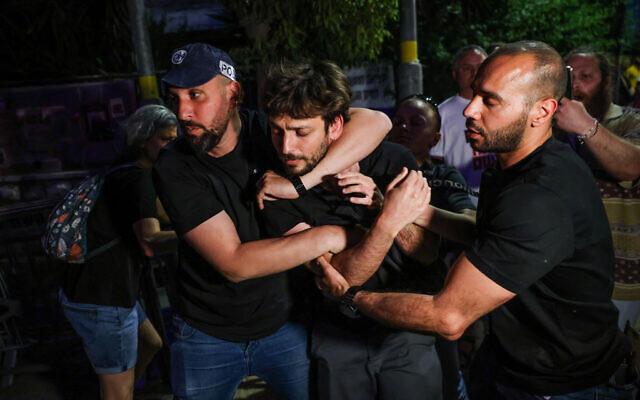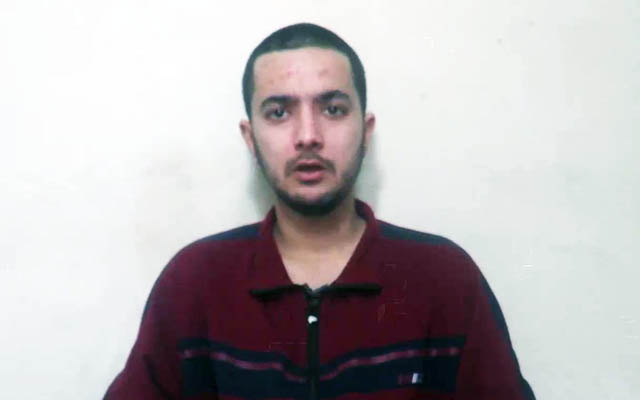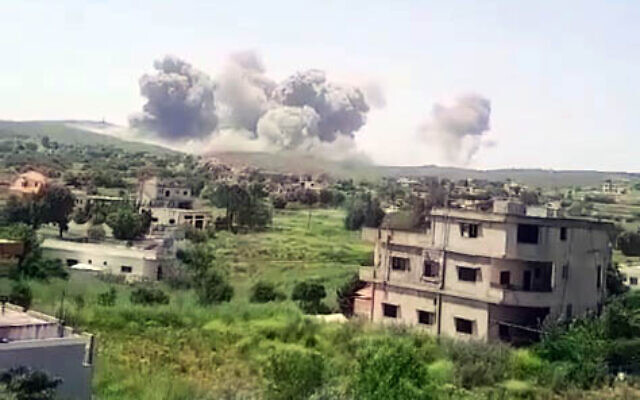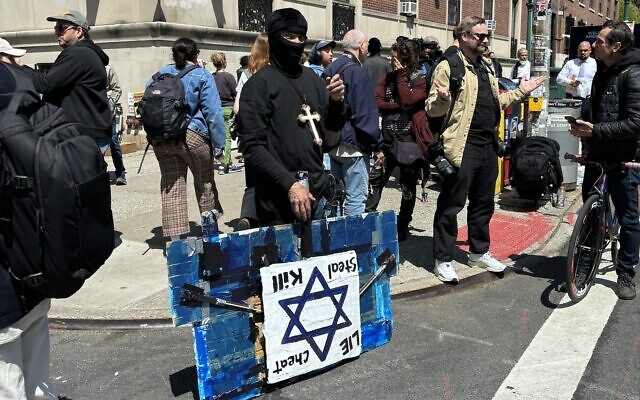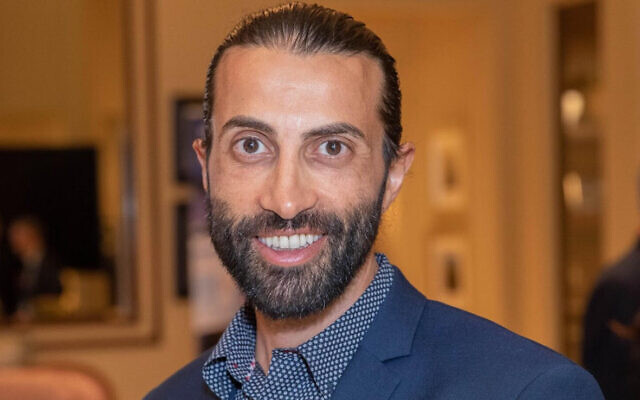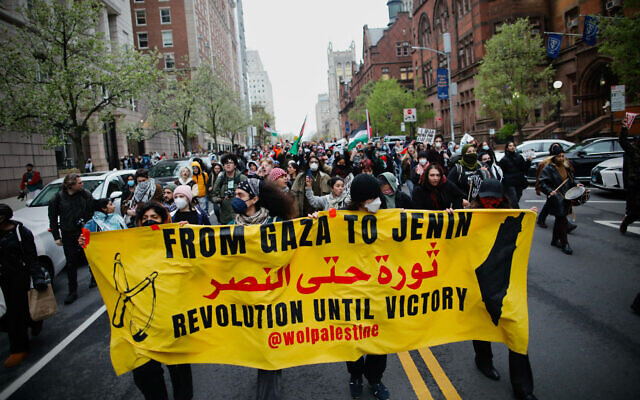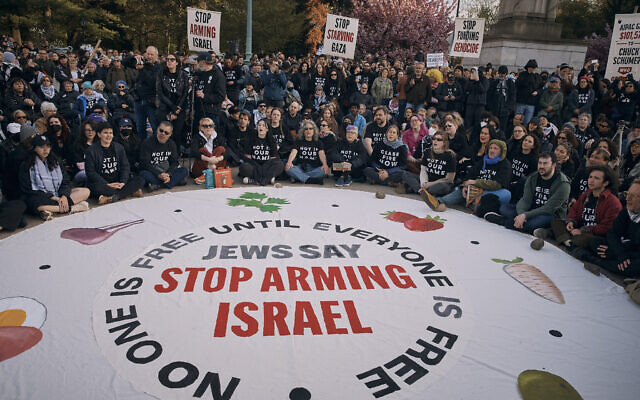Far-right MK vacates Sheikh Jarrah ‘office’ in return for more policing in area
Itamar Ben Gvir reportedly tells PMO he will remove table, awning under deal for increased law enforcement near homes claimed by right-wing Jews in tense East J’lem neighborhood
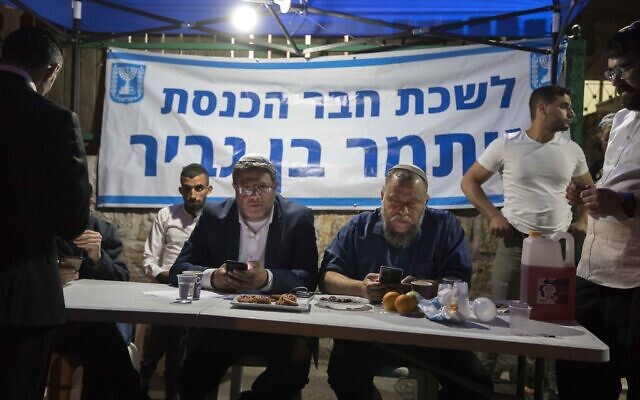
Far-right MK Itamar Ben Gvir agreed on Friday to vacate what he declared to be a parliamentary office in Sheikh Jarrah in return for a police presence near homes claimed by right-wing Jews in the tense East Jerusalem neighborhood until the end of the Muslim holy month of Ramadan.
The agreement was reportedly reached following talks between the lawmaker and the Prime Minister’s Office after Ben Gvir rejected an initial proposal of a meeting on the matter to take place on Sunday with Internal Security Minister Amir Ohana, who is responsible for policing.
On Thursday evening, Ben Gvir set up what he declared to be a parliamentary office in the neighborhood — a table under an awning with a sign — in response to what he said was a lack of protection for Jewish families in the area.
In a statement on Thursday, Ben Gvir said that he was “moving his office” to the neighborhood and that he would have a personal security guard with him from the Knesset.
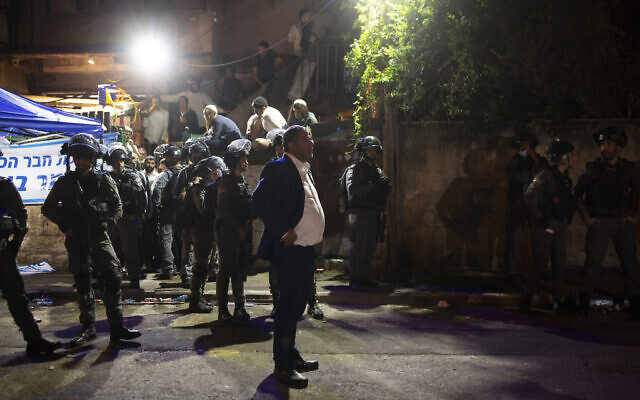
Ben Gvir is a disciple of the late extremist rabbi Meir Kahane and head of the neo-Kahanist Otzma Yehudit party, which merged into Religious Zionism before the election. He spent many hours in court as a defendant in his youth before passing the bar and going on to represent ultra-nationalist Jews accused of perpetrating racially motivated attacks against Arab Israelis and Palestinians.
Ben Gvir set up his “office” in Sheikh Jarrah where tensions have flared over the last week as dozens of Palestinians are at risk of being evicted following a long legal battle with right-wing Jewish Israelis trying to acquire property in the neighborhood, which is just north of Jerusalem’s Old City.
Pro-Palestinian protesters have been meeting for nightly iftars — the meal held after breaking the day-long fast during the Muslim holy month of Ramadan — at long tables set up outside. Ben Gvir set up his table and awning across the street from the iftar meal.
Footage showed an Israeli spraying what appears to be pepper spray at the Palestinian iftar table, apparently leading to a violent clash.
זה התחיל ככה מתנחים מרססים גז לאנשים יושבים לשברת התסום pic.twitter.com/Nr1yJOehGu
— חדשות ממגזר הערבי ירושלים اخبار مقدسية (@Essawi2050) May 6, 2021
Video circulating online later showed protesters on both sides hurling rocks and chairs at each other, and Palestinians tearing down the awning, before police moved in. There were no reports of serious injuries.
תיעוד: הקטטה האלימה בין יהודים לערבים בשייח ג'ראח בירושלים@moyshis pic.twitter.com/tmRdzpCr4P
— כאן חדשות (@kann_news) May 6, 2021
Police arrested at least 15 people, all of them Palestinians. In one incident, a Jewish Israeli man fired into the air after a vehicle was set on fire.
Dozens of Palestinians in Sheikh Jarrah may be removed from their homes in the coming weeks if the Supreme Court turns down their appeal against a pending eviction. They are likely to be replaced by right-wing Jewish nationalists who say the Palestinian homes were built on land owned by Jewish associations before the establishment of the State of Israel.
According to Ir Amim, a left-wing human rights group focusing on Jerusalem, around 200 families in East Jerusalem are now under threat of eviction, with cases slowly moving through administrative bodies and Israeli courts. Around 70 of those families live in Sheikh Jarrah.
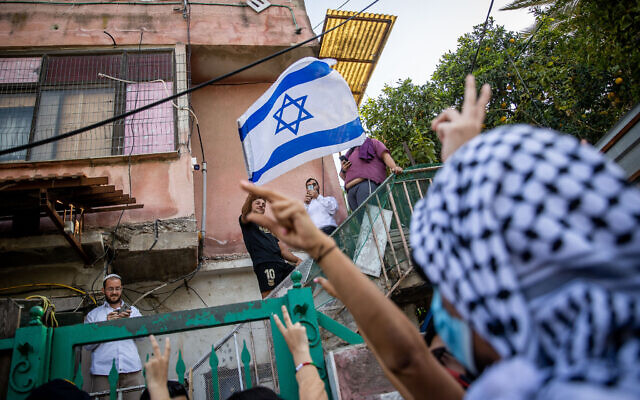
The neighborhood has long been a focal point of Jewish-Arab tensions. A small Jewish community lived in the area before 1948, when East Jerusalem fell under Jordanian control. Home to a shrine revered as the final resting place of Shimon Hatzadik, a third-century BCE high priest also known as Simeon the Just, the neighborhood is often visited by Jewish pilgrims.
According to the Association for Human Rights in Israel, around 358,000 Palestinians live in East Jerusalem, the portion of the city captured by Israel from Jordan in 1967, where they have residency rights but generally not Israeli citizenship. Palestinians view East Jerusalem as the capital of a future Palestinian state. The same area is home to 225,000 Jewish Israelis, most of whom reside in newer Jewish neighborhoods such as Gilo and Ramat Shlomo.
But nationalist Jews have long sought to expand the Jewish presence in East Jerusalem’s Palestinian neighborhoods — whether through covert purchases of Palestinian homes, court-ordered evictions, or the construction of de facto Jewish-only housing projects — creating settlement-like enclaves within the neighborhoods.
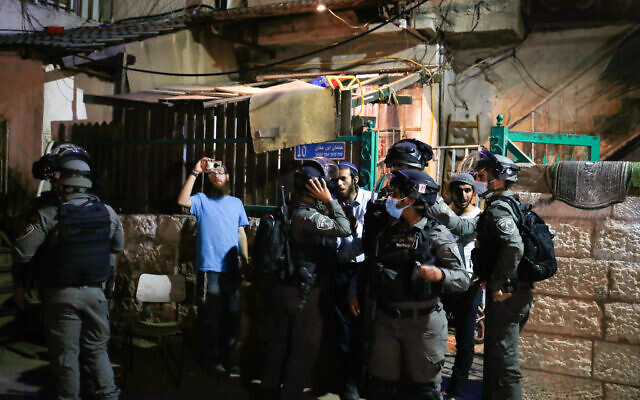
Tensions in Jerusalem, specifically around the Old City, reached a boiling point last month after police prevented people from congregating outside Damascus Gate at the start of Ramadan, which Arabs said was an inflammatory move that obstructed a long-held tradition of gathering at the site during the Muslim holy month. Authorities later canceled the policy.
After some Palestinians filmed videos in which they attacked ultra-Orthodox passersby, the Jewish supremacist Lehava group, whose leader Bentzi Gopstein was present in Sheikh Jarrah alongside Ben Gvir, responded by marching through Jerusalem’s downtown calling for “Death to Arabs” and searching for Palestinians to attack.
Aaron Boxerman and agencies contributed to this report.



